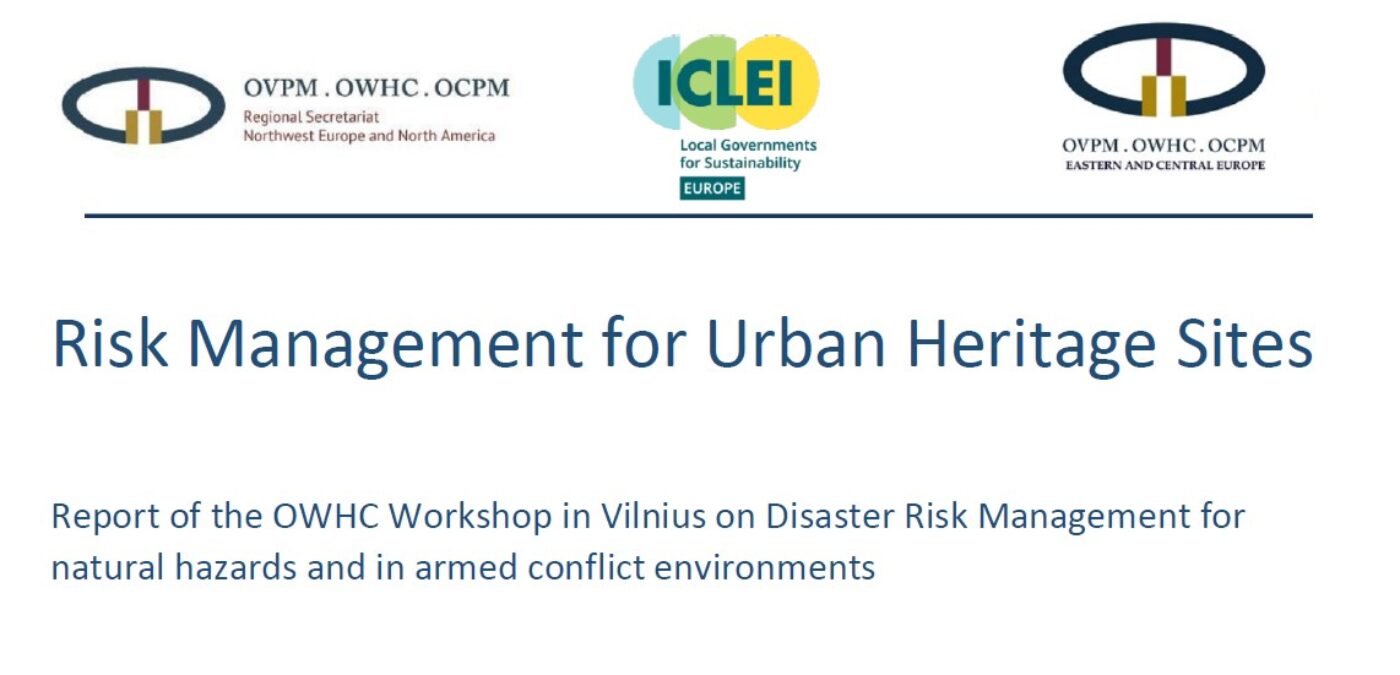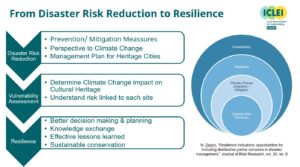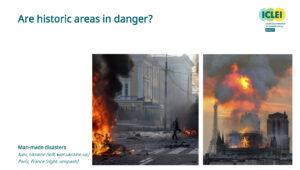8 March 2023
Risk Management for Urban Heritage Sites – Final Report of Vilnius Workshop available

Cities are constantly changing and subject to a wide variety of different challenges. This applies even more so to UNESCO World Heritage Cities, given their high density and the special value of heritage assets which is relevant for their outstanding universal value. Their urban management, future development and resilience aspects are prone to special challenges.
The recent Covid-19 pandemic, but also the war in Ukraine and the meta-challenge of climate change with its increasing impact on our daily lives have stimulated the idea to better connect the spheres of cultural heritage and Disaster Risk Management and Preparation. Following a tradition of successful trans-regional cooperation, the OWHC Regional Secretariat for Northwest Europe and North America (based in Regensburg/Germany) together with the Central and Eastern Europe Secretariat (based in Warsaw/Poland) took the initiative to develop a joint training workshop for (World) Heritage Site Managers and urban decision makers to learn and apply practical tools about Disaster Risk Management (DRM).
Together with experienced trainers from ICLEI Europe, a 2.5 day workshop was offered Nov 29 – Dec 1 2022 in Vilnius/Lithuania on the topic “Heritage cities building resilience. Managing the risk of disasters in a changing world”.


This report summarizes the outcome and it is aimed at Heritage managers around the world (and particularly from Europe and North America) to collect inputs on how to mainstream disaster risk management in heritage management. Readers will be guided through different sections to approach urban resilience from a very concrete and easy-to-understand perspective, focusing on historic areas. The experience from different EU-funded projects, and in particular from ARCH – Saving Cultural Heritage, have informed the development of the workshop, thus this document.
Please find the complete report as pdf download file here
If you have any comments or questions, do not hesitate to contact the CEER or NorthwestEurope-North America Regional Secretariats! Thank you for sharing this report with interested stakeholders in your communities!


